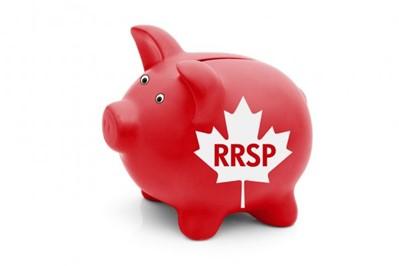
With the RRSP contribution deadline just around the corner on March 2nd, the most common question we receive is...
Should I contribute to an RRSP or TFSA?
As everyone's financial situation is different there isn't just one answer. Our goal is to ensure our client's contribution matches their overall financial plan. So, here are some points to consider:
- An RRSP or Registered Retirement Savings Plan is a government-sponsored retirement plan with significant tax benefits. RRSPs were created by the government to provide tax breaks to those who invest money for their retirement. Any money you contribute to an RRSP will be exempt from income taxes the year you make the deposit and will only be taxed when you withdraw it. RRSPs are therefore an effective way to cut down a current-year tax bill.
- RRSPs have contribution limits - the maximum amount a taxpayer is allowed to deposit into an RRSP annually. The contribution limit of your RRSP consists of this year's deduction limit and any unused contributions from previous years. The CRA sets an annual limit on the number of contributions each eligible taxpayer can make to RRSPs. The deduction limit is usually 18% of your income or $27,830 (for 2021), whichever is less. You can call the Tax Information Phone Service (TIPS) at 1-800-267-6999 to find out your limit.
- If your income is over $50,000, then an RRSP might be the account for you. If you expect to be in a lower tax bracket after retirement you can lower your income taxes for this year, deferring the taxes until you withdraw the funds at a lower tax bracket.
- TFSA stands for Tax-Free Savings Account. You do not get a tax deduction for your contributions to a TFSA. However, the gains you make from any investments and savings can be withdrawn from the account - tax-free. It is a great incentive for saving and maximizing any earnings you may make on the investment. You may invest the funds in a wide array of financial assets including guaranteed investment certificates, stocks, bonds and savings accounts. That means that you're not limited to the lower interest rates that traditional savings accounts usually offer.
- TFSAs also have very few withdrawal rules associated with them. You're free to withdraw at any time without penalty, but there are government-mandated limits to how much you can contribute every year. The maximum you're allowed to put into a TFSA each year is known as the contribution limit and it varies from year to year. You can find out more about this year's contribution room here. A TFSA isn't conditionally linked to your income. Everybody gets essentially the same contribution room that keeps growing each year, starting from the moment they're 18. So, you're not limited by that 18% rule that governs RRSPs.
- Families and individuals who are in lower tax brackets are perhaps better served by choosing a TFSA over an RRSP. An RRSP's benefit is when you contribute while in a higher tax bracket and then withdraw while in a lower tax bracket. If you pull money out of your RRSP with other income and it actually puts you at a higher tax bracket, you will end up paying the government back more than you received, in tax refunds.
Call us today to discuss your personal situation and to see which makes more sense for your situation!








